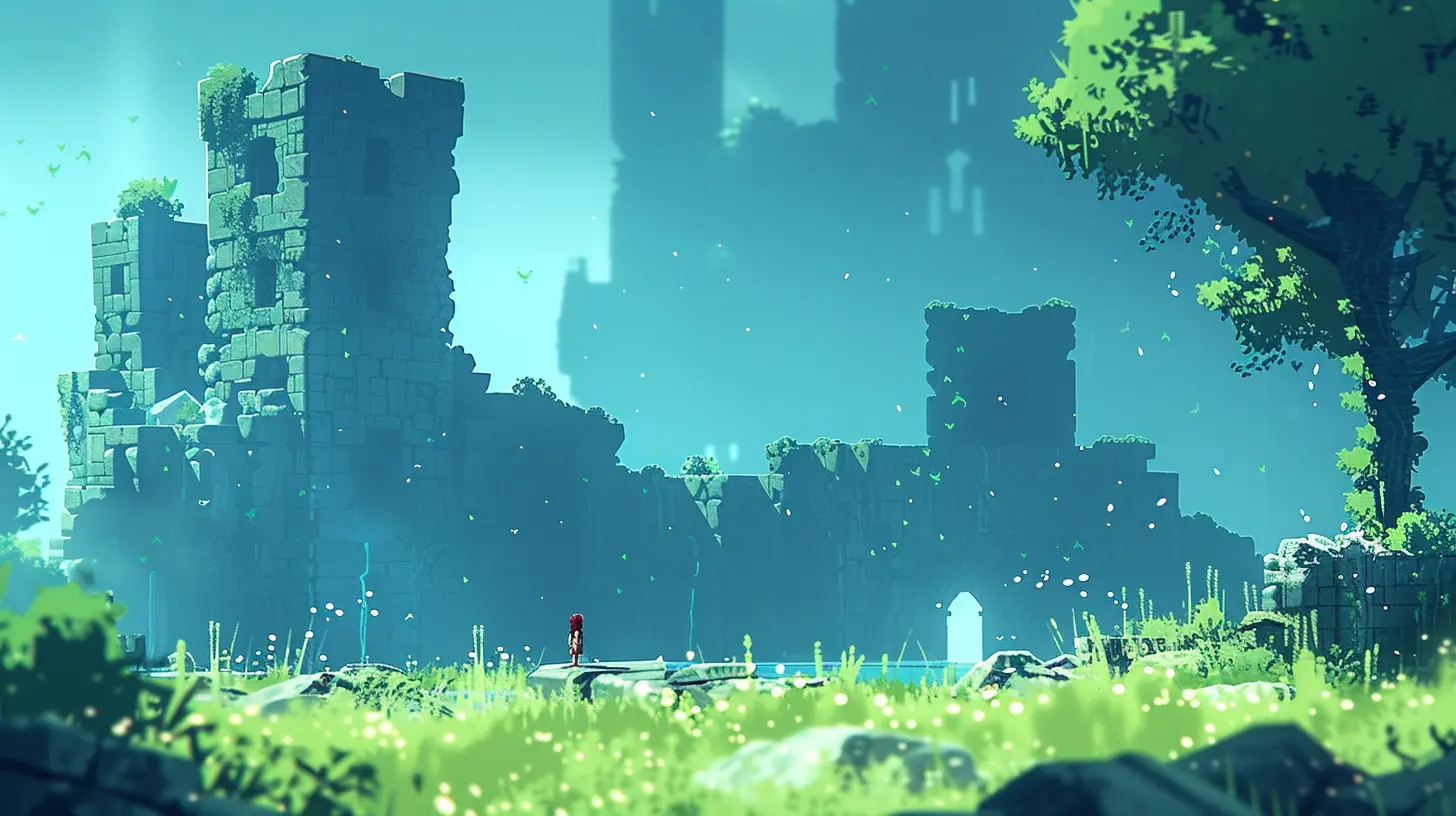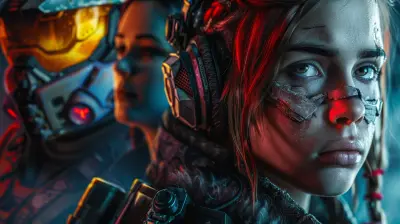The Importance of Player Choice in Indie Games
31 May 2025
When you think about the magic of video games, what comes to mind? Is it the immersive worlds? The adrenaline-pumping gameplay? Or maybe, it’s that electric feeling of making decisions that shape the story. For many of us, how a game lets us interact with its world and characters is what truly hooks us. Nowhere is this more evident than in indie games, where player choice often takes center stage.
In this article, we’re diving deep into why player choice is so vital in indie games. So, grab your controller (or keyboard), and let’s chat about how this mechanic creates some of the most memorable gaming experiences ever.
What Do We Mean by "Player Choice"?
Alright, before we go all in, let’s pin down what we’re talking about here. Player choice is essentially the ability for players to influence a game’s narrative, gameplay, or mechanics in a meaningful way. It’s like being the captain of your own ship rather than just a passenger along for the ride.This could mean anything from deciding which path to take in a branching storyline to choosing your character’s outfit (yes, even that’s a form of player choice). The beauty of it? It puts you in control and gives you a sense of ownership over the game.
Now, while player choice can show up in any type of game, indie games often do it differently—and dare I say, better. 
Why Indie Games Do It Best
Indie developers have a knack for making player choice feel impactful. Why? For starters, they don’t have massive corporate overlords breathing down their necks. They’re free to take risks, experiment, and think outside the box.Imagine a painter with a blank canvas and zero rules. That’s what indie devs are working with. This creative freedom often leads to unique mechanics that make you, the player, feel like your decisions actually matter.
Plus, indie games tend to have smaller budgets, which might sound limiting, but it’s actually a good thing in this case. Instead of flashy graphics or sprawling open worlds, indie developers focus on storytelling and player engagement. It’s not about how big the world is; it’s about how deep it feels. 
Player Choice Makes the Game Yours
Let’s be real—you don’t play games to feel like a bystander. You play to feel like a hero, a villain, or maybe something in between. Player choice gives you that power.Take a game like Undertale. On the surface, it’s a charming retro-style RPG. But the choices you make—whether you show mercy to enemies or go on a ruthless rampage—completely change the game’s narrative and even how other characters treat you. It’s like the game remembers what you’ve done, and it doesn’t let you off the hook.
This isn’t just fun; it’s deeply personal. It’s like the game is saying, “Hey, your actions have consequences.” And isn’t that what we all want? To feel like we’re making a difference, even if it’s just in a digital world? 
Emotional Connection Through Choice
Have you ever felt genuinely sad after making a tough decision in a video game? That’s the power of player choice. It creates an emotional connection between you and the game.Take Oxenfree as an example. This indie gem lets you shape the relationships between characters through dialogue choices. Depending on what you say (or don’t say), friendships can flourish—or crumble. By the time the credits roll, you might find yourself thinking, “Wow, did I mess up?”
These emotional investments stick with you long after you’ve put the controller down. It’s like those “choose your own adventure” books we had as kids, but on steroids. You’re not just reading about someone else’s adventures; you’re living your own.
Replayability Through Choice
Here’s the thing: when a game gives you meaningful choices, it begs to be played more than once. Indie games, in particular, excel at this because they offer multiple endings, different paths, or unique gameplay experiences depending on your decisions.Let’s talk about Hollow Knight. Okay, I know what you’re thinking: “Wait, isn’t that more about exploration than choice?” True, but even small decisions like which abilities to unlock first or which areas to tackle early can completely change how you experience the game.
When you have the freedom to play your way, the replay value skyrockets. You’re curious to see what would’ve happened if you’d gone left instead of right—or if you’d been a little kinder (or meaner) to that NPC.
Indie Games and Moral Dilemmas
One thing indie games tend to nail is moral dilemmas. Big-name games? They often play it safe, giving you clear “good” and “evil” options. But indie games? They love to live in the gray area, forcing you to grapple with tough decisions that don’t have a “right” answer.Think of Papers, Please. You play as a border control officer, and your job is to decide who gets into the country and who doesn’t. Sounds simple, right? Not so much. Each decision feels like a balancing act between doing your job, protecting your family, and holding on to your humanity.
This level of nuance makes the game unforgettable. It’s not about winning or losing; it’s about reflecting on your choices and what they say about you as a person.
How Culture and Representation Play a Role
Indie games often shine when it comes to showcasing diverse stories and perspectives. Player choice plays a huge role in this because it allows you to step into someone else’s shoes—and make decisions from their point of view.Take Celeste. On one level, it’s a tough-as-nails platformer. But dig deeper, and you’ll find it’s a story about mental health, self-acceptance, and overcoming personal struggles. While the choices in the game aren’t as overt as in a title like Life is Strange, they’re woven into the gameplay itself. Every climb, fall, and retry feels like a step in the protagonist’s journey—a journey you’re actively shaping.
Indie games like this remind us how powerful gaming can be as a medium for storytelling and empathy.
Challenges of Implementing Player Choice in Indie Games
Of course, creating a game with meaningful player choice isn’t a walk in the park. Indie devs face plenty of challenges, like limited budgets, teams, and resources.It’s not just about letting players make choices; it’s about ensuring those choices feel impactful. A poorly executed system can leave players feeling like their decisions didn’t really matter, which is worse than having no choices at all.
But when done right? It’s pure magic. Indie developers often overcome these obstacles by narrowing their focus. Instead of trying to do too much, they zero in on one or two key aspects of the game and make them shine.
The Future of Player Choice in Indie Games
The future’s looking bright, folks. As technology advances and tools become more accessible, we’re going to see even more indie games where player choice plays a starring role.Imagine games with AI-driven narratives that adapt in real-time to your decisions, or titles that blur the lines between single-player and multiplayer experiences. The possibilities are endless, and indie developers are at the forefront of this evolution.
What’s exciting is how player choice continues to redefine what gaming can be. It’s not just about entertainment anymore; it’s about connection, reflection, and storytelling in its most interactive form.
Wrapping It Up
At the end of the day, player choice is what makes games truly special—especially in the indie scene. It’s the secret sauce that turns a simple game into a deeply personal experience. Whether you’re deciding the fate of an entire realm or just picking which color shirt to wear, those choices matter. They make the game yours.So next time you dive into an indie game, pay attention to the choices you’re making. You might just be surprised at how much they stick with you. And honestly? That’s the beauty of it all.
all images in this post were generated using AI tools
Category:
Indie GamesAuthor:

Tina Fisher
Discussion
rate this article
3 comments
Deborah McClintock
Empower creativity, embrace unique journeys!
June 23, 2025 at 2:46 AM

Tina Fisher
Absolutely! Embracing player choice fosters creativity and allows for diverse, unique gaming experiences that reflect individual journeys.
Phaedron Stevens
Great article! Player choice truly empowers gamers, making their experiences more personal and immersive. Indie games often excel in this area, offering unique narratives and gameplay mechanics that encourage exploration and creativity. It's inspiring to see how developers prioritize player agency in crafting memorable gaming adventures. Thank you for sharing!
June 7, 2025 at 5:02 AM

Tina Fisher
Thank you for your thoughtful comment! I completely agree—player choice is essential in creating immersive experiences, and indie games truly shine in this regard. I'm glad you enjoyed the article!
Gideon McCallum
Player choice empowers creativity in indie games, fostering unique experiences and personal connections that elevate storytelling and gameplay. A vital element!
June 1, 2025 at 3:47 AM

Tina Fisher
Thank you for your insightful comment! I completely agree—player choice is indeed essential in indie games, enhancing creativity and personal engagement in storytelling and gameplay.



